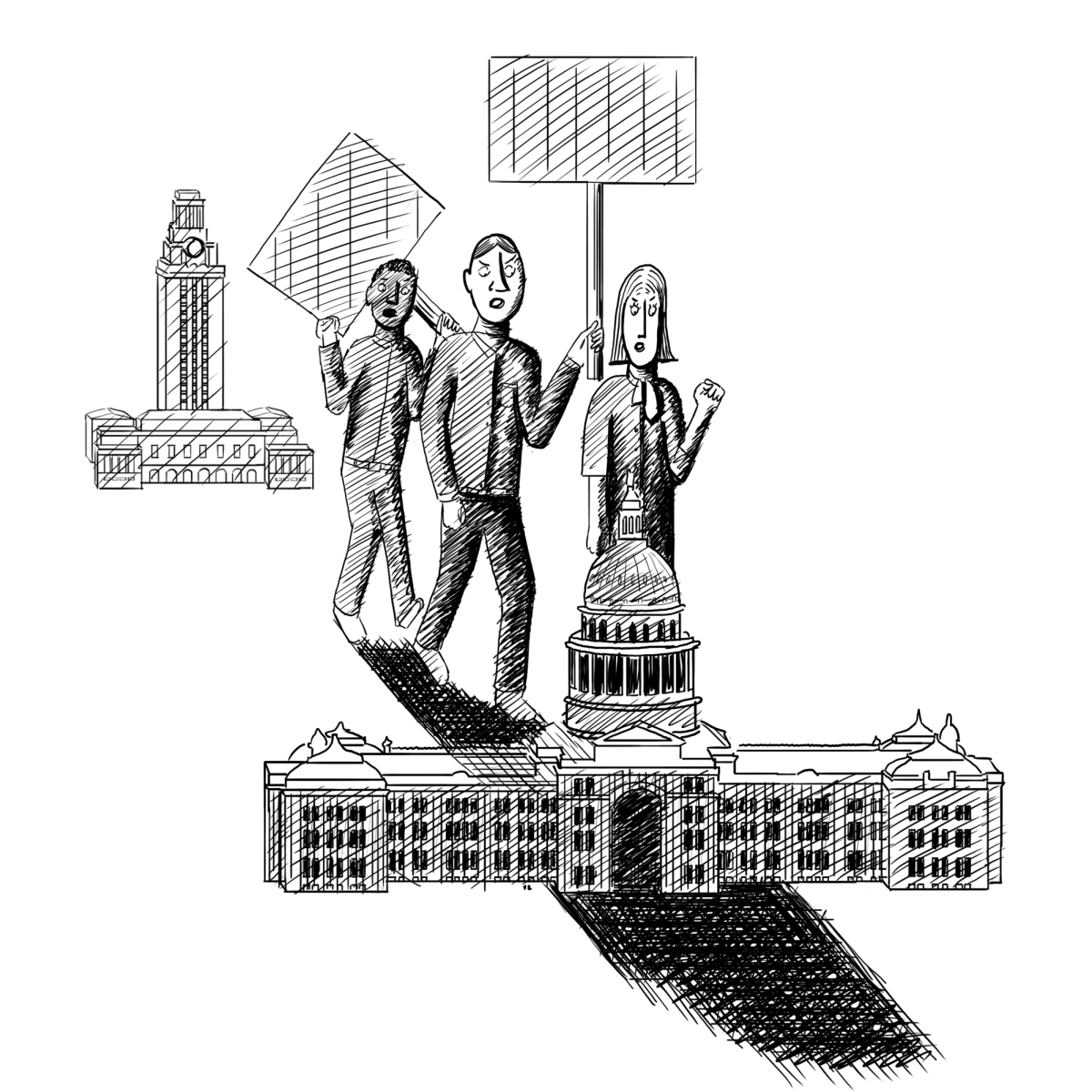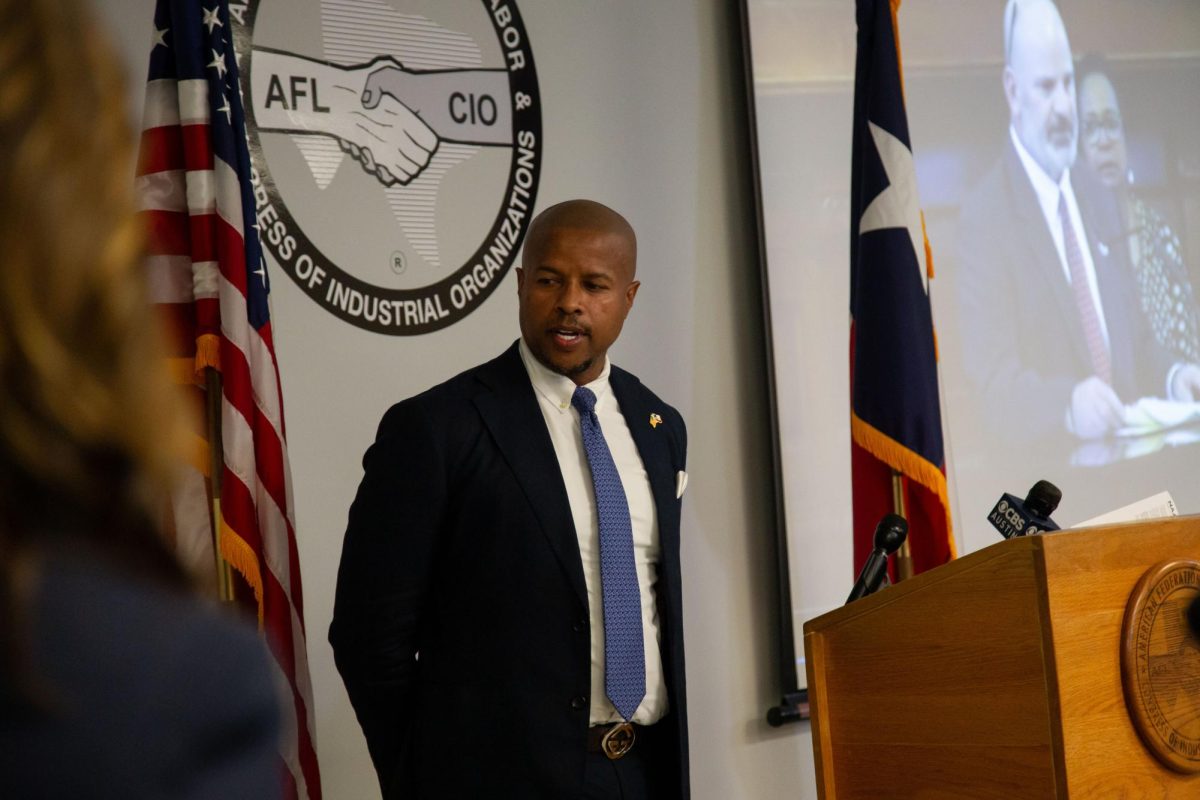When George W. Bush was president and Tom DeLay the house majority leader, super lobbyist Jack Abramoff was one of the most powerful men in Washington, D.C. Then, in 2006, he was convicted for mail fraud, conspiracy to bribe public officials and tax evasion after a scandal involving Indian casino interests found him and 21 other White House officials guilty of corruption.
After four years in prison, the former lobbyist is now writing for anti-corruption publications and asking for hard lobbying reform in Washington, to the derision of some pundits who claim he has yet to change. Bringing his campaign to UT, Jack Abramoff spoke with The Daily Texan to talk about what he wants from Congress.
Daily Texan: What kind of message are you hoping to bring to the students at UT?
Jack Abramoff: I’m telling people what’s happening with your government. The special interests have a special sway in Washington that’s not good for the Republic, and I’m educating citizens, legislatures and students about what goes on behind the closed doors of Washington power politics.
DT: Could you describe what’s going on to me? How do you know that corruption
is happening?
Abramoff: First of all, I used to participate in it, second of all, I met and worked with the organizations that are still participating in it and third of all, you see it in the dysfunction that is currently affecting our federal government. The government is unable to stop reaching out and touching our lives in every possible way, and in many cases we see special interest with significant sway in Washington in a way that is detrimental to people’s lives.
DT: And is that problem coming from Capitol Hill or is coming from lobbying industry?
Abramoff: Well I think it’s both. It’s endemic whenever you have institutions or individuals who accumulate a lot of power, and the exercise of that power is often corrupt. In Washington in particular, we see the relationship between the special interests, lobbyists and their legislature goes over the line of what is necessarily appropriate all too frequently.
DT: As an insider, could you tell me what is valued in the lobbying industry? What are the aspirations of lobbyists?
Abramoff: I think the overall value that most share is the desire to have power, and attendant to that, is the desire to have money. While there are other impulsions that also drive them to participate politically, at the end when they enter the lobbying world those are the primary motivators.
DT: One of the things you’ve come out against in particular is that revolving door between K Street and the Hill. How do you plan to stop that from occurring without infringing on free association?
Abramoff: I think it needs to be encroached upon. There is no right in the constitution to serve in congress and then cash in. Frankly I think it would be an anathema to the founders for this to be occurring. What I would propose is a lifetime ban, but that probably wouldn’t survive a legal challenge. At a minimum I think we need a 10-year ban on a change from the public service to the influence industry.
DT: I understand you’ve been working as critic of the lobbying industry in your new book and as a blogger for the Republic Report. Could you tell me about that experience?
Abramoff: United Republic that puts out Republic Report, and we are working very hard right now to pin together legislation that would correct a lot of the ills that are pervasive in the system. Later in the spring, we are hoping to launch an aggressive political campaign to actually reform the system.
DT: What should people ask for in order for that actual change to come about?
Abramoff: Well, we are looking at four points that would have a fairly significant impact on the system. One is a combination of barring special interests from giving any money politically, or conveying any financial interests of benefit to a public servant. We are hoping to create and voucher/tax credit that allow people to give contributions at a much lower level, maybe $50. That would entice more people to get involved rather than just the special interests, who have something to get back. Second is the revolving door [between K Street and the Hill]. Three is to create a term limit to stop people from spending their entire life in Washington, either as a representative or a lobbyist. Step four is to change and affirm the rule that Congress cant pass any legislation that doesn’t apply to itself, and that would go a long way to curbing insider trading.
DT: When you have all these changes enacted, what kind of change would you expect in the lobbying industry?
Abramoff: Well, we are hoping it brings out the average citizen’s voice, in a way that levels the playing field and no longer drowns out a citizen by a lobbyist who goes off to raise $100,000. We hope to dampen the voice of the special interests, be they labor unions, industries or individuals who are using money to tilt the playing field in their favor. By making the field even, we are hoping more issues are discussed in Congress based on their legal merit rather than their monetary value.
DT: If you had the opportunity to be in the same position you were at the height of the Tom Delay era, what do you think you could have done as an individual to bring out the change your now asking for?
Abramoff: Well I think I would do what I’m doing now. One of my greatest strengths were my strategic approaches to go out and win. While I don’t have the resources at my disposal that I had then, those capacities are still in tact. In those days I might have had a bit of a head start, although I’m not sure how my reforms would have been greeted by the people I was business with, who didn’t want the end of that gravy train and were making big bucks. I’m not certain that if I had the epiphany then that I made in later days, that I would have had the same influence that I have now. If anything, I probably would have been cast out a lot faster than I was.
DT: Do you think being cast out has been advantageous?
Abramoff: In a certain respect it has. Its been a very difficult long road for me, but I’m happy where I’m at right now and I can use those years of experience to do something good after participating so successfully and effectively in the lobbying industry.



















